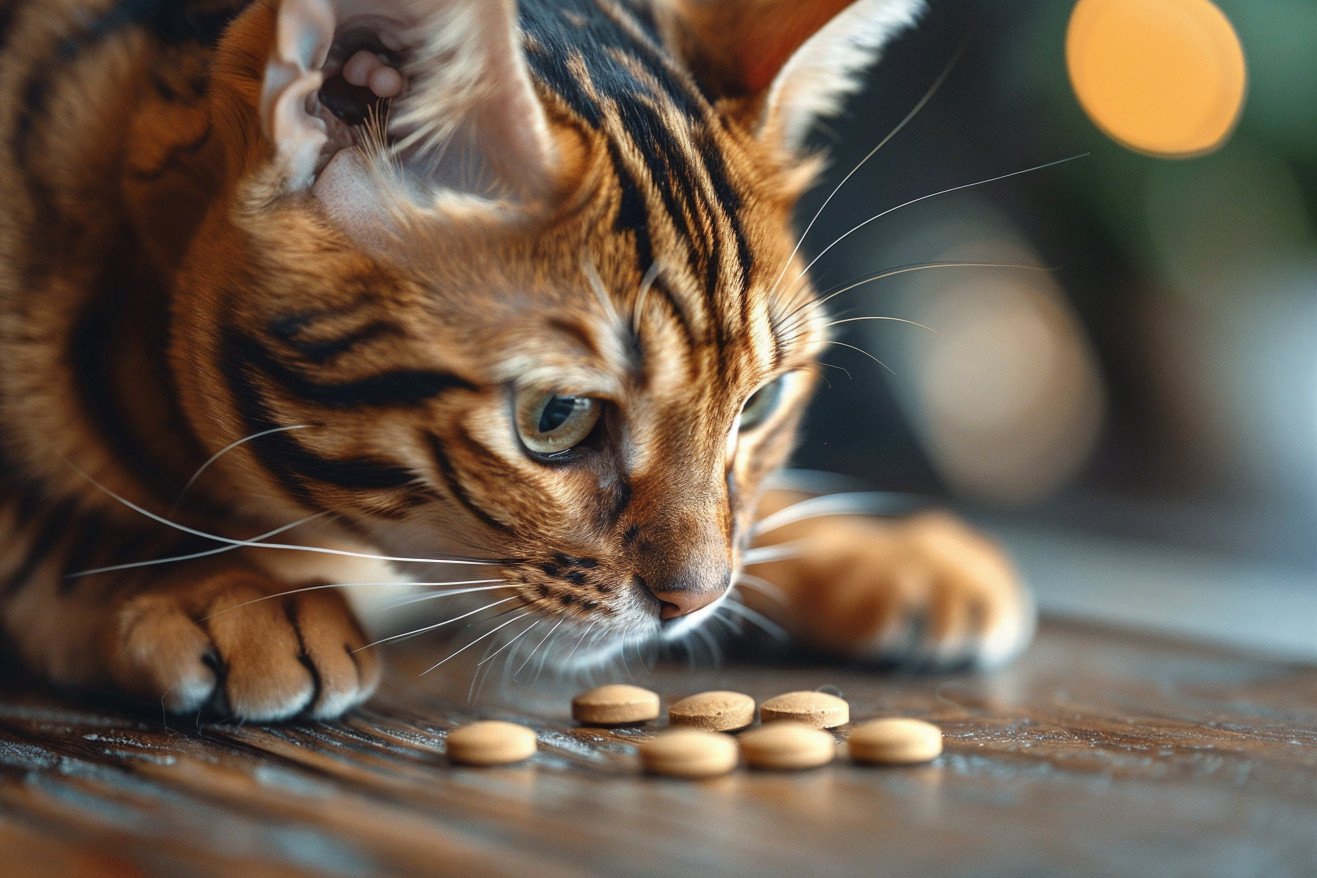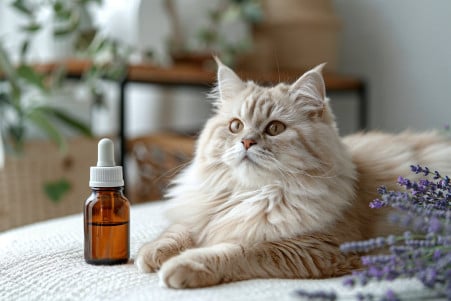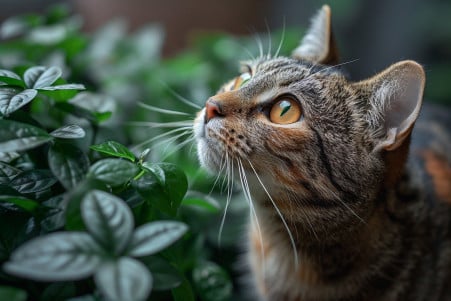Can You Give Melatonin to Cats? What the Research Says
28 May 2024 • Updated 28 May 2024

If you have a cat that's having trouble sleeping and you're wondering if melatonin is a good option, you're in the right place. Melatonin is safe for cats with proper veterinary supervision. It's a natural supplement that can help regulate sleep cycles by boosting the body's melatonin levels. That said, it's important to note that cats should only be given melatonin that's specifically formulated for cats and that the dosage should be determined by a vet based on the cat's weight and other factors.
In this article, we'll get into the details of using melatonin for cats, including a deep dive into the research on its effectiveness and safety. This information will help you understand the right dosage, potential side effects, and how melatonin works in a cat's body. With this knowledge, you can decide whether melatonin is the right choice for helping your cat get a good night's sleep.
Can you give cats melatonin?
How to Find the Right Melatonin Dosage for Your Cat
There are a few things to keep in mind when you're trying to find the right melatonin dosage for your cat. According to HolistaPet, the cat's weight, age, and health condition all play a role in the right dosage. That said, the general dosage range is between 1.5mg and 6mg every 12 hours or split into smaller doses and given up to three times a day.
When it comes to sleep, Paw CBD suggests starting with the lowest dose that's appropriate for your cat's weight and then increasing it based on their reaction. Cats.com says that doses between 1.5mg and 12mg can be used to treat sleep disorders.
If you're using melatonin to suppress a female cat's heat cycles, the dosage may be higher, with doses between 4mg and 30mg per day being recommended, according to a study published by SAGE Journals. No matter what you're using melatonin for, it's important to start with the lowest dose and work your way up while working with your vet.
The time of day you give your cat melatonin matters too. According to HolistaPet, you should give your cat melatonin about 30 minutes before their normal bedtime to help them get the most out of it. By taking all of these factors into account and working with your vet, you can make sure that you're using melatonin to meet your cat's needs in a safe and effective way.
What Melatonin Can Help With in Cats
Melatonin can help cats with a variety of issues, from regulating sleep-wake cycles and improving sleep quality, especially in older cats who have age-related sleep disturbances. Paws & Claws Animal Hospital also explains that melatonin can be used to treat anxiety, stress, and behavioral problems caused by environmental changes or separation anxiety.
Moreover, a study in the Journal of Feline Medicine and Surgery found that melatonin supplements can be used to suppress the heat cycle in female cats, which can help reduce the behavioral and health problems that come with the heat cycle. There is also some evidence that melatonin can have other positive effects, including boosting the immune system, reducing inflammation, and even helping to treat certain diseases like Cushing's disease or diabetes.
That said, Basepaws points out that more studies are needed to fully understand the potential uses of melatonin in cats. If you think melatonin could help your cat, make sure to talk to your vet before giving it to your pet to make sure it's safe and appropriate.
How to Give Cats Melatonin and Things to Watch Out For
It is important to use melatonin supplements that are specifically made for cats, as human melatonin products may have different dosages or additives that can be toxic. Paw CBD warns that human melatonin should never be given to cats, as it may contain ingredients that are not safe for cats.
Melatonin should be given orally, either mixed in with food or administered directly into the cat's mouth, and in accordance with the recommended dosage and frequency. Cats.com explains that dosages can vary from 1.5-12mg before bedtime to help with sleep issues, to 4-30mg per day to help suppress a female cat's heat cycle.
Possible side effects to look out for include extreme lethargy, changes in appetite or behavior, skin reactions, and gastrointestinal problems like vomiting or diarrhea. Paw CBD also warns that melatonin can have interactions with other medications, so make sure to let your vet know about any other medications or supplements your cat is taking.
It is important to have regular check-ins with your vet, especially when you first start giving your cat melatonin or when you change the dosage, to make sure that the supplement is being given safely and effectively. JustAnswer also warns that melatonin should be used with care in cats with liver disease, as it is metabolized by the liver.
Other Natural Alternatives to Melatonin for Cat Stress and Sleep
If you’re looking for other alternatives to melatonin to help your cat with stress and sleep, there are a number of natural, non-pharmaceutical options that may be beneficial, including herbs, supplements, and scents. PetMD explains that herbs like chamomile, lemon balm, passionflower, and valerian root are often included in natural cat calming supplements.
Supplements like L-theanine, L-tryptophan, magnesium, and B vitamins can also help reduce stress and improve sleep, according to PetMD. Lavender essential oil and flower essences like Rescue Remedy can be used to create a calming environment for your cat.
In addition, pheromone products and catnip can help reduce stress in some cats, although the effects can vary from one cat to another. The Spruce Pets also points out that it's important to experiment with different products to determine what will be most effective for your cat.
Conclusion: Should You Give Your Cat Melatonin?
Melatonin can be a safe and effective way to help your cat with sleep and behavioral issues, but it should only be used with veterinary oversight and close monitoring. While melatonin supplements have been shown to help with sleep quality, anxiety reduction, and heat cycle suppression, there are also potential risks and side effects to consider.
If you're considering melatonin for your cat, it's important to talk to your vet about your cat's specific situation, health, and any potential drug interactions. For some cats, natural alternatives like calming herbs, supplements, and pheromones may be a better option, especially if melatonin causes side effects or doesn't work as well as expected.
In the end, the decision to use melatonin or other calming aids for your cat should be based on a careful evaluation of the potential benefits and risks, and a willingness to closely monitor your cat's response.


